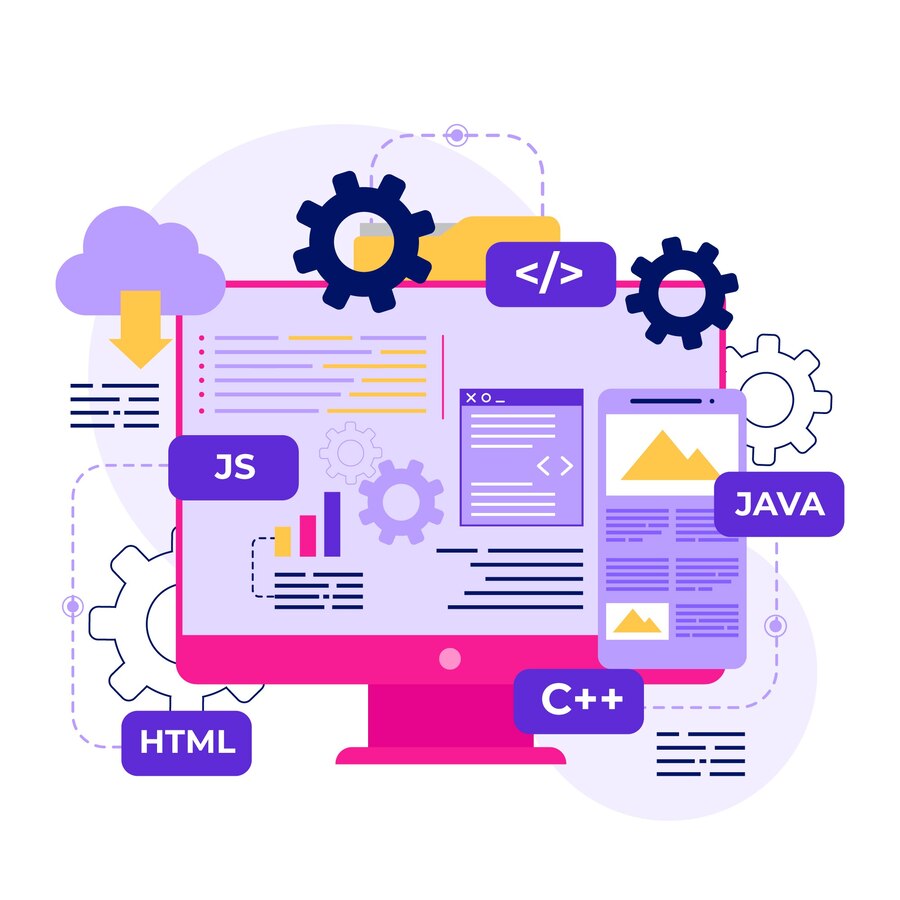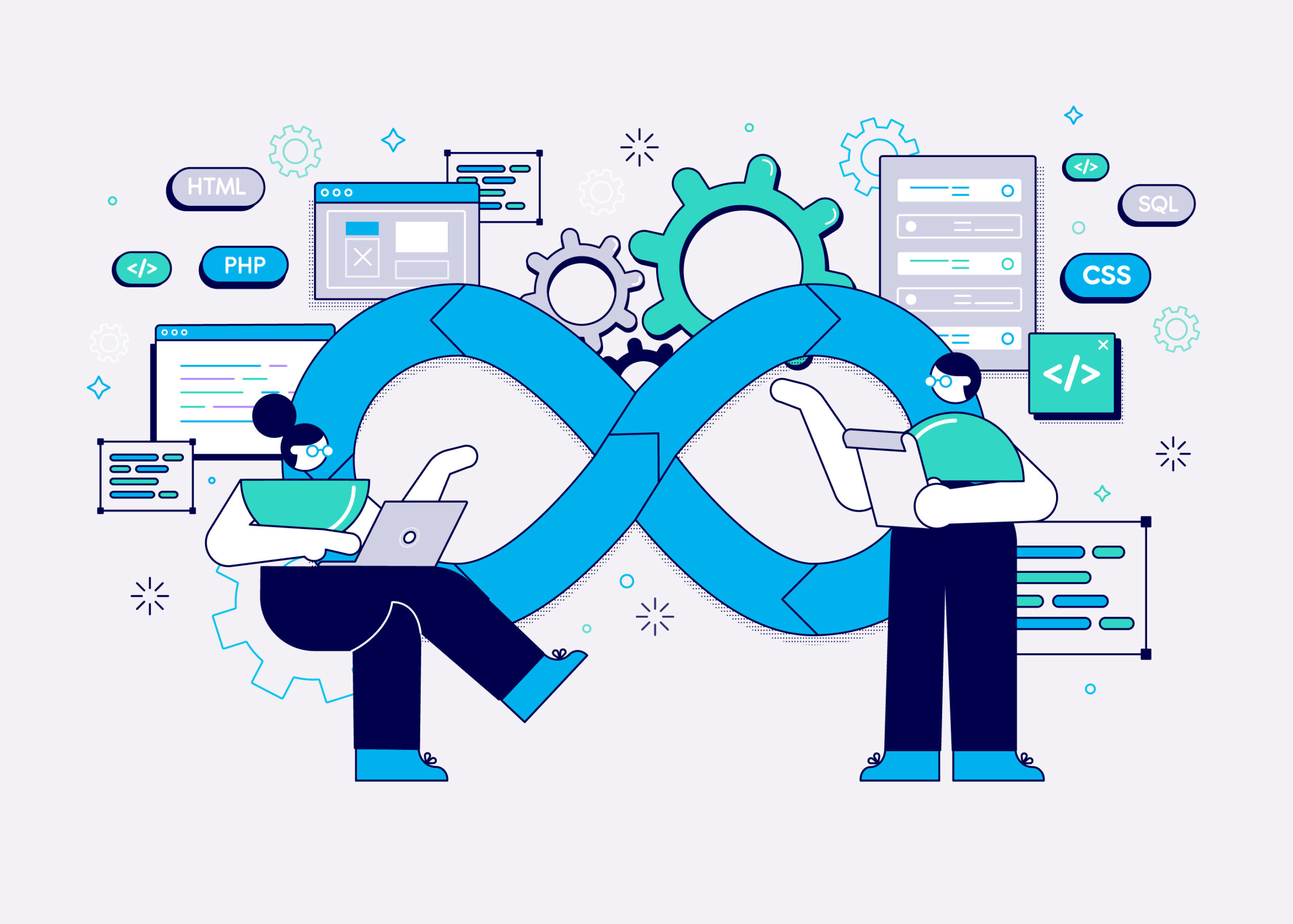Highlights
- Dive deep to understand the challenges and complexity of the field.
- Allows learning critical problem-solving skills and continuous learning.
- Learning different computer languages allows hands-on experience in building projects.
- Gives great career opportunities, high salaries, and remote work opportunities.
- Learn some tips on how to manage the workload and thrive in a competitive industry.
With technological advancement, a career in software engineering is thriving offering great salaries and job security with limitless growth opportunities. However, if you are wondering, is software engineering hard? The answer is yes. Like any other field, this field requires consistent determination and hard work to master. So, being able to apply technical skills for problem-solving is a challenging learning curve that needs to be overcome.
So, in this article, we will see how challenging software engineering can be, how is it difficult, and how you can successfully make your place in the field.
What is Software Engineering?
Simply put, software engineering involves the application of principles for software development. From designing, and developing, to testing, software engineering includes everything. It is different from simple coding. It requires a deep understanding of data structures, algorithms, system design, and other practices of development.
So, if you are wondering, is computer software engineering hard? The answer depends on you. If you had an IT background it won’t be much difficult for you. However, if you are someone changing field then the learning curve would be quite large to grasp. But one thing is for sure, it’s challenging but exciting for creative thinkers.
How Hard is Software Engineering?
1. The Learning Curve
One of the reasons people ask, how hard is software engineering. is because of the steep learning curve. Software engineering involves a range of technical skills, including:
- Programming Languages
Learning languages like Python, Java, C++, and JavaScript can be difficult for beginners.
- Data Structures and Algorithms
Understanding sorting algorithms, trees, graphs, and dynamic programming requires logical thinking and practice.
- System Design
Large-scale applications demand knowledge of databases, servers, APIs, and scalability.
- Debugging and Problem-Solving
Identifying and fixing errors is a crucial skill that requires patience and analytical skills.
While challenging at first, consistency and practice make it easier over time.
2. Constantly Evolving Field
Software engineering is dynamic, with new frameworks, tools, and best practices emerging constantly. Engineers must keep learning to stay relevant. This continuous learning can be demanding, making some wonder, is it hard to be a software engineer? The answer depends on how adaptable and eager you are to keep up with industry trends.
3. Problem-solving and Logical Thinking
Software engineering is fundamentally about solving problems efficiently. If you enjoy breaking down problems and designing solutions, you may find it easier. However, those who struggle with logical thinking may find it more challenging.
4. Workload and Deadlines
Software engineers often work under tight deadlines to deliver projects on time. Debugging complex issues and meeting client expectations can add stress, making the job demanding.
Moreover, depending on the company or industry, software engineers might need to work overtime or be on call to address urgent issues. This aspect can add to the stress levels, making time management and prioritization critical skills.
Is It Hard to Be a Software Engineer?

Being a software engineer requires dedication, but it’s not impossible. Here are some factors that can make the job more manageable:
- Strong Foundation
A good grasp of programming fundamentals will make learning new technologies easier.
- Problem-Solving Mindset
Enjoying challenges and analytical thinking makes tasks more enjoyable.
- Continuous Learning
Keeping up with new developments ensures long-term success.
- Collaboration Skills
Working well in teams helps navigate complex projects.
- Adaptability
Being open to new technologies, tools, and methodologies will help you stay relevant.
If you’re asking, is it hard to be a software engineer? the difficulty depends on how prepared and motivated you are to learn and grow in the field.
How to Get Into Software Development
Despite the challenges, many successfully transition into software development. Here’s how you can get started:
1. Learn Programming Languages
Start with beginner-friendly languages like Python or JavaScript. Platforms like Codecademy, freeCodeCamp, and Udemy offer interactive courses.
2. Study Data Structures and Algorithms
Mastering these concepts will help you excel in technical interviews and real-world problem-solving.
3. Build Projects
Practical experience is crucial. Work on personal projects, contribute to open-source or develop a portfolio to showcase your skills.
Projects can be anything from simple web applications to full-fledged software products. The more hands-on experience you gain, the better prepared you will be for real-world challenges.
4. Get Certified or Earn a Degree
While not mandatory, a degree in computer science or certifications like AWS, Google Developer Certification, or Microsoft Azure can boost credibility.
Self-taught developers can also find success by building a strong portfolio and networking within the tech industry.
5. Gain Experience Through Internships
Internships and freelance work provide hands-on experience and make job applications more competitive. Many companies offer paid internships, allowing you to gain experience while earning a stipend.
6. Prepare for Technical Interviews
Big tech companies have rigorous hiring processes. Use platforms like LeetCode, HackerRank, and Cracking the Coding Interview to practice coding problems.
Interviews often include algorithmic challenges, system design problems, and behavioral questions. Preparing well in advance increases your chances of success.
7. Stay Updated
Follow industry news, blogs, and forums like “Stack Overflow”, “GitHub”, and “Dev.to” to keep up with trends. Engaging in online tech communities can also help you network and learn from experienced professionals.
8. Develop Soft Skills
Software engineering is not just about coding. Communication, teamwork, and time management skills are equally important. Engineers frequently collaborate with designers, product managers, and clients, so being able to articulate ideas clearly is crucial.
The Rewards of Being a Software Engineer
Despite the challenges, software engineering offers immense benefits, including:
- High Salaries
Software engineers are among the highest-paid professionals globally.
- Job Security
The demand for software engineers continues to grow.
- Remote Work Opportunities
Many companies offer flexible or remote work options.
- Creative and Impactful Work
Engineers create solutions that impact millions of users worldwide.
- Career Growth
There are various career paths, from software development to AI, cybersecurity, and cloud computing.
Conclusion
So, is software engineering hard? The answer is subjective. While it has a steep learning curve and requires continuous learning, those with a passion for problem-solving and technology can succeed. By following structured learning paths and gaining hands-on experience, you can build a great career in software engineering.
If you’re considering a career in software development, start learning today and embrace the challenges, it’s a field filled with opportunities and innovation. With dedication and the right approach, becoming a software engineer is achievable for anyone willing to put in the effort.
We hope this article was helpful. For more such IT-related informative content, stay connected with Tambena Consulting blog section.






